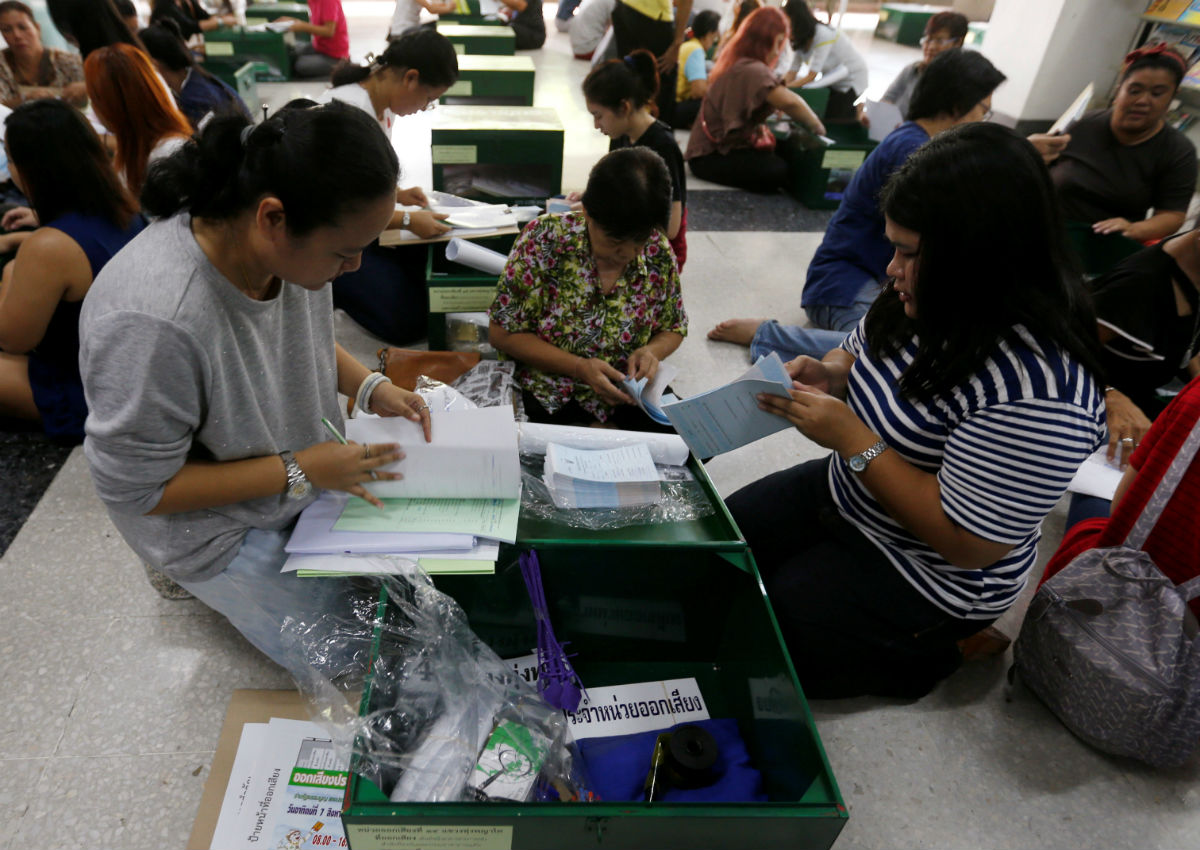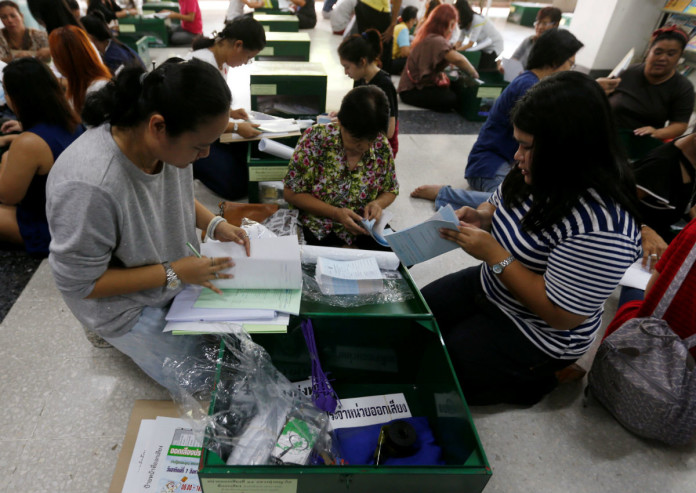Thailand votes on Sunday in a referendum on a new junta-backed constitution that would pave the way for a general election in 2017 but require future governments to rule on the military’s terms.
The referendum is the first major popularity test for the junta led by Prime Minister Prayuth Chan-ocha, who has suppressed political activity during the two years since he seized power in a coup in 2014.
Polls suggest a small lead in favour of accepting the new constitution, but most voters remain undecided. There are 50 million eligible voters and the Election Commission is targeting a turnout of 80 per cent. Preliminary results are expected at around 8.00 p.m. (1400 London time).
Prayuth has said he will not resign if Thais reject the constitution and that a general election will take place next year no matter what the outcome.
“We need to hold a general election in 2017 because that is a promise we made,” he said ahead of the vote. “There has been no charter that pleases people 100 per cent.”
Soldiers have toppled governments run by the powerful Shinawatra family twice in over a decade of political tumult in Thailand.
Critics say the charter is the military’s attempt to make good on their failure to banish former Prime Minister Thaksin Shinawatra and his brand of populism from Thai politics after the coup that removed him in 2006.
While Thaksin lives in self-imposed exile, he retains a strong influence, particularly with his rural support base in the north. His sister Yingluck swept to power with an electoral landslide in 2011.
Thaksin called the charter a “folly” on Thursday, saying it would perpetuate the junta’s power and make it impossible to govern Thailand.
Reuters interviews with senior officers showed the military’s ambition is to make future coups unnecessary through the new charter by weakening political parties and ensuring the military a role in overseeing the country’s economic and political development.
Under the constitution, which would be Thailand’s 20th since the military abolished an absolute monarchy in 1932, a junta-appointed Senate with seats reserved for military commanders would check the powers of elected lawmakers.
“The military wants to conduct state affairs more or less under its supervision,” Gothom Arya, director of Mahidol University’s Research Center for Peace Building and a junta critic, told Reuters.
“The stakes are high when Thais vote this time.”
In the northeastern city of Khon Kaen, a former local leader of the “red shirt” Shinawatra supporters said the military wins either way on Sunday.
“Some people are fed up,” said Sabina Shah. “Fed up that regardless of whether or not the vote goes through, the junta is here to stay.”
The vote comes against the back-drop of concern about the health of King Bhumibol Adulyadej, 88. The military has for decades invoked its duty as defender of the deeply revered monarch to justify its interventions in politics.
NO RECONCILIATION
Whichever way the vote goes, the United Nations would like to see more dialogue between the military and political opponents, said Luc Stevens, the UN chief in Thailand.
“There is no reconciliation if one group says ‘Lets reconcile on our terms’,” he told Reuters. “If you don’t want to leave anybody behind in this country, you need to think about an inclusive process, an open dialogue, and ensure that people can express their opinion.”
Thailand’s largest political parties, including the one loyal to Thaksin, reject the constitution but the government has banned all sides from referendum campaigning.
That has not stopped the junta from deploying thousands of military cadets to carry a message to Thailand’s 50 million eligible voters encouraging them to participate in the referendum. The Election Commission is targeting a turnout of 80 per cent.
Amnesty International said the junta had created a chilling climate ahead of the vote through pervasive human rights violations.
“If people cannot speak their minds freely or take part in political activities without fear, how can they meaningfully engage in this referendum?” Josef Benedict, Amnesty International’s regional deputy director said in a statement on Friday.
Phankamol Trongvanicham, a veterinary student in Khon Kaen, was one of those still undecided.
Phankamol said he had little hope that referendum would help heal Thailand’s divisions, given that it only reflected one side’s political vision.
“This is unlikely to be the last constitution.”






